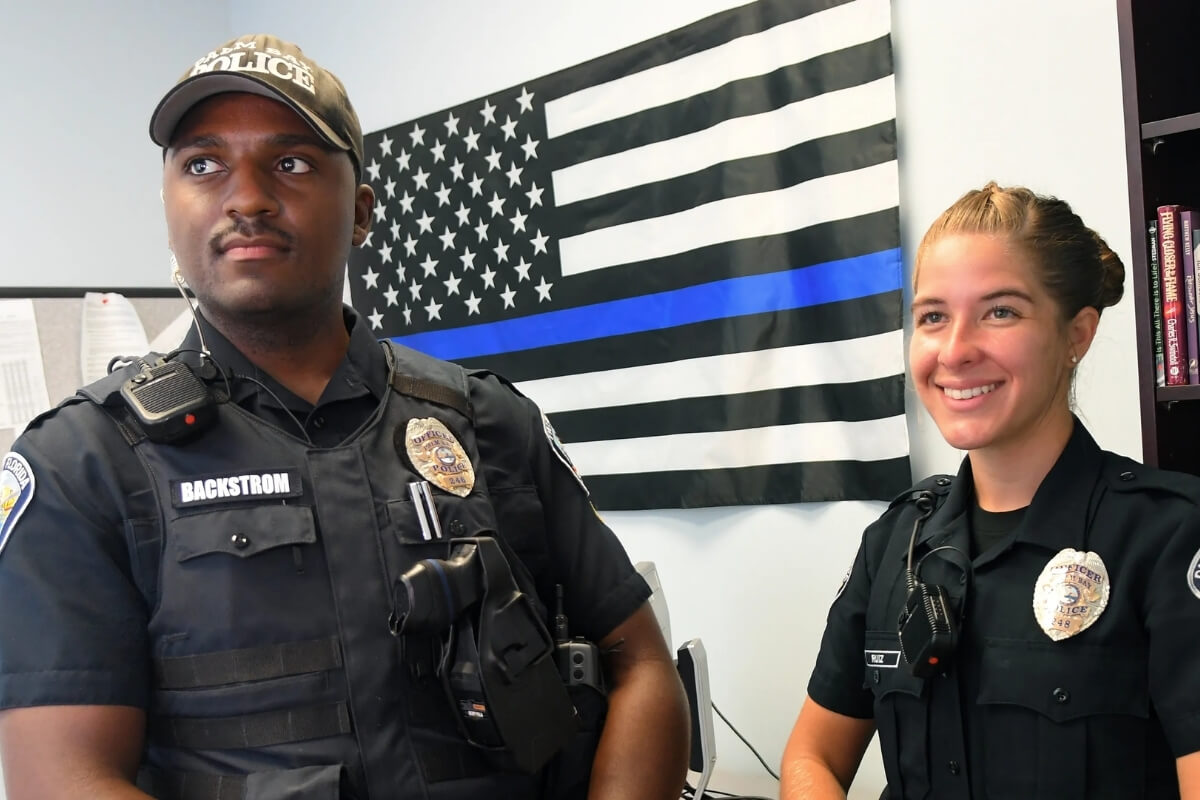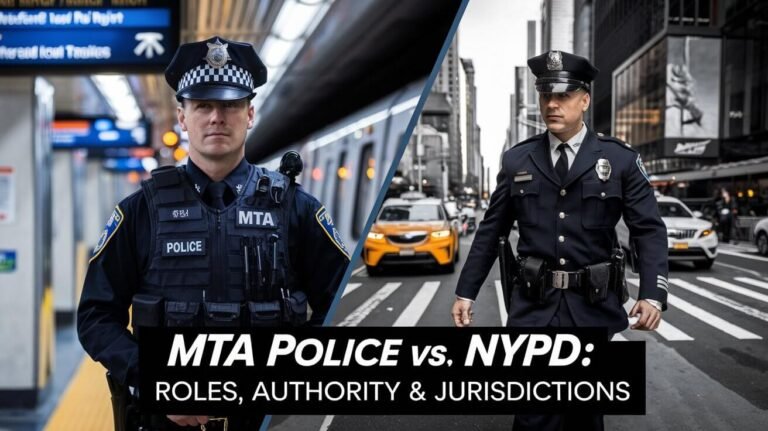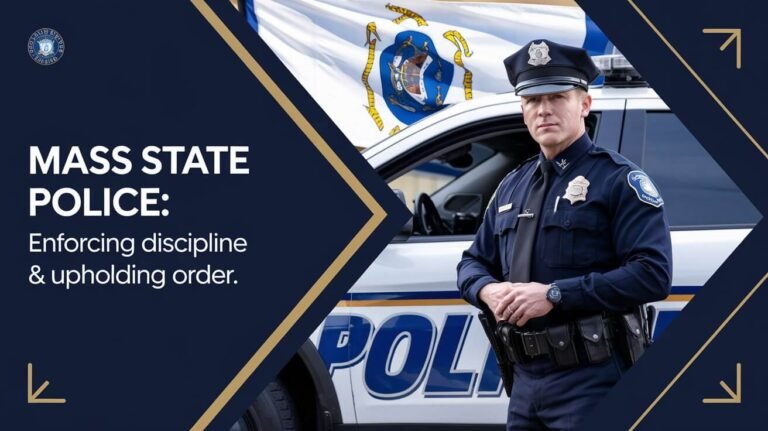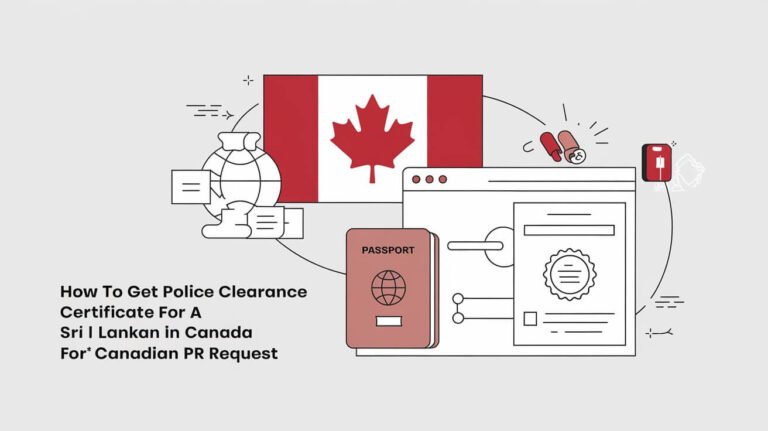Police Officer Age Requirements: From Minimum to Maximum

Becoming a police officer is a noble career path that attracts individuals of various ages. The minimum age to become a police officer in most U.S. jurisdictions is 21 years old. However, age requirements can vary significantly depending on the state, city, and specific police department. This article explores the ins and outs of age requirements for aspiring law enforcement officers, covering everything from minimum and maximum age limits to how age affects various aspects of a police career.
Minimum Age Requirements for Police Officers
The journey to becoming a police officer often starts with meeting the minimum age requirement. This crucial factor ensures that candidates have reached a level of maturity and life experience necessary for the demanding role of law enforcement.
General Age Requirements Across the United States
Most police departments across the country set their minimum age requirement at 21 years old. This age aligns with the legal drinking age and is considered a point where individuals have gained some life experience and maturity. However, some departments allow candidates to apply or begin the application process earlier.
For example:
- Some agencies accept applications from individuals as young as 18 or 19 years old.
- These younger applicants may start the hiring process but can’t be sworn in as officers until they turn 21.
- The Boston Police Department, for instance, allows candidates to take the entrance exam at 19 years old.
Variations in Minimum Age by State and Department
Age requirements can differ significantly from one jurisdiction to another:
- New York City Police Department (NYPD) requires candidates to be at least 21 years old and under 35 years old at the time of appointment.
- Chicago Police Department accepts applicants as young as 20 years old, but they must be 21 by the time they enter the police academy.
- Some smaller departments or rural areas might have lower age requirements to attract more candidates.
It’s crucial for aspiring officers to check the specific requirements of the departments they’re interested in joining.
Why Age Matters in Law Enforcement
The minimum age requirement serves several purposes:
- Maturity: Older candidates are generally considered more emotionally mature and better equipped to handle the stresses of police work.
- Life experience: A few extra years can provide valuable experiences that contribute to better decision-making and interpersonal skills.
- Legal considerations: Many departments require officers to be at least 21 to carry a firearm.
- Public perception: Older officers might command more respect from the public, especially in challenging situations.
Maximum Age Limits for Becoming a Police Officer
While minimum age requirements are standard, maximum age limits are more controversial and vary widely among departments.
Understanding Upper Age Restrictions
Some police departments set upper age limits for new recruits:
- These limits often range from 35 to 45 years old.
- The reasoning behind these limits includes concerns about physical fitness, career longevity, and pension costs.
For example:
- The New York State Police has a maximum age of 29 for trooper applicants.
- The Philadelphia Police Department caps the age at 40 for new recruits.
Departments with No Maximum Age Limit
Not all departments have upper age restrictions:
- Many agencies have removed age caps to promote diversity and tap into the experience of older candidates.
- The Los Angeles Police Department (LAPD) has no maximum age limit for new officers.
- Some federal law enforcement agencies, like the FBI, also don’t have upper age limits for special agent positions.
Reasons Behind Age Caps in Law Enforcement
Departments that maintain age limits cite several reasons:
- Physical demands: Policing is physically demanding, and older recruits might struggle with these aspects.
- Training investment: Agencies invest significantly in training new officers and want to ensure a longer career return on that investment.
- Pension considerations: Older recruits might not work long enough to fully vest in pension systems.
- Adaptability: Some argue that younger officers might be more adaptable to new technologies and policing methods.
Education and Experience Requirements
Age isn’t the only factor in becoming a police officer. Education and experience play crucial roles and can sometimes interact with age requirements.
High School Diploma vs. College Credits
Most departments require at least a high school diploma or GED. However, many are increasingly preferring or requiring some college education:
- Some agencies require a certain number of college credits (often 60 semester hours).
- Others might require a full bachelor’s degree.
- Departments like the NYPD offer higher starting salaries for recruits with college degrees.
These educational requirements can impact the age at which individuals can become officers, as obtaining a degree typically takes several years after high school.
Military Service and Age Considerations
Military experience is highly valued in law enforcement:
- Many departments offer age waivers for veterans.
- Some agencies might count military service towards meeting minimum age requirements.
- The leadership and discipline gained in the military are seen as valuable assets for police work.
For instance, a 20-year-old veteran might be eligible to apply for a position that normally requires applicants to be 21.
Prior Law Enforcement Experience and Age Requirements
Lateral transfers between departments can sometimes bypass age restrictions:
- Officers with experience in other agencies might be exempt from maximum age limits.
- Some departments actively recruit experienced officers, valuing their training and on-the-job knowledge.
This policy allows older individuals to transition into law enforcement careers, even if they’re above the typical maximum age for new recruits.
Physical Fitness and Age
Physical fitness is a crucial aspect of police work, and age can play a significant role in an officer’s physical capabilities.
Age-Related Physical Fitness Standards
Most departments have physical fitness tests as part of their hiring process:
- These tests typically include elements like running, push-ups, sit-ups, and obstacle courses.
- Some departments adjust their fitness standards based on age and gender.
- For example, a 40-year-old applicant might have different time requirements for a 1.5-mile run compared to a 22-year-old applicant.
Preparing for Physical Ability Tests at Different Ages
Aspiring officers of all ages should focus on physical preparation:
- Younger applicants might have an edge in terms of raw physical ability.
- Older applicants can compensate with disciplined training and preparation.
- A balanced fitness routine including cardio, strength training, and flexibility is crucial.
Regardless of age, maintaining good overall health through proper nutrition and regular exercise is essential for passing physical tests and thriving in a law enforcement career.
Maintaining Fitness Throughout a Police Career
Physical fitness doesn’t end after joining the force:
- Many departments have ongoing fitness requirements for officers.
- Regular fitness assessments ensure officers maintain the physical capability to perform their duties.
- Older officers might face additional challenges in maintaining peak physical condition.
Departments often provide resources and programs to help officers stay fit throughout their careers, recognizing the importance of physical readiness at all ages.
The Police Academy and Age Factors
The police academy is a crucial phase in becoming a law enforcement officer, and age can play a significant role in this intense training period.
Age Considerations During Academy Training
Police academies are designed to be challenging, both mentally and physically:
- Training typically lasts 3-6 months, with long days of physical and academic work.
- Younger recruits might have an advantage in terms of physical resilience and recent academic experience.
- Older recruits often bring valuable life experience and maturity to the training environment.
Challenges for Older Recruits in the Academy
Older candidates might face unique challenges during academy training:
- Physical demands can be more taxing on older bodies.
- Adjusting to a rigorous schedule and academic environment might be harder for those long out of school.
- Balancing family responsibilities with academy demands can be challenging for older recruits.
However, many older recruits succeed by leveraging their life experience, discipline, and determination.
Success Stories of Officers Who Started Later in Life
Despite challenges, many individuals have successfully become police officers later in life:
- Some departments actively recruit second-career individuals for their diverse experiences.
- Older recruits often bring valuable skills from previous careers, such as communication, problem-solving, and leadership.
- These success stories demonstrate that determination and the right attitude can overcome age-related challenges.
Career Progression and Age in Law Enforcement
Age continues to play a role throughout a police officer’s career, affecting opportunities for advancement and specialization.
How Age Affects Promotions and Specializations
In many departments, promotions are based on a combination of experience, performance, and testing:
- Younger officers might have more time to work their way up the ranks.
- Older officers might advance more quickly due to prior leadership experience.
- Some specialized units, like SWAT teams, might have age restrictions due to physical demands.
Retirement Age for Police Officers
Retirement policies vary widely among departments:
- Many agencies have mandatory retirement ages, often between 57 and 65.
- Some departments offer early retirement options after 20 or 25 years of service.
- Pension plans are often structured to encourage retirement after a certain number of years served.
These policies can influence career planning for officers of all ages.
Second Careers in Law Enforcement
Law enforcement offers various opportunities for second careers:
- Retired officers often transition to private security, investigation, or teaching roles.
- Some pursue federal law enforcement positions, which often value prior police experience.
- Others may move into policy or administrative roles within the criminal justice system.
These second career options demonstrate the value of law enforcement experience, regardless of the age at which one starts in the field.
Age Discrimination Laws and Policing
While age requirements exist in many departments, it’s important to understand how these interact with age discrimination laws.
Legal Protections for Older Applicants
The Age Discrimination in Employment Act (ADEA) protects workers 40 and older from discrimination:
- This law applies to hiring, promotion, discharge, compensation, and terms of employment.
- However, there are exceptions for jobs where age is a bona fide occupational qualification (BFOQ).
Some police departments argue that age limits qualify as BFOQs due to the physical demands of the job.
Challenging Age-Based Hiring Practices
Some individuals and organizations have challenged age limits in court:
- Several lawsuits have been filed against departments with maximum age restrictions.
- Some of these challenges have led to changes in hiring policies.
- The outcomes often depend on whether the department can justify age limits as necessary for job performance.
Balancing Department Needs with Age Diversity
Many departments are reassessing their age policies:
- There’s a growing recognition of the value of age diversity in police forces.
- Some agencies are implementing fitness-based standards rather than age-based restrictions.
- Balancing operational needs with equal opportunity remains an ongoing challenge for many departments.
Benefits of Age Diversity in Police Forces
Having officers of various ages can bring numerous advantages to law enforcement agencies and the communities they serve.
Life Experience and Maturity in Policing
Older officers often bring valuable life experiences to the job:
- They may have better developed communication and conflict resolution skills.
- Their life experiences can help in relating to a wider range of community members.
- Maturity can be an asset in high-stress situations.
Generational Perspectives in Community Policing
A diverse age range among officers can enhance community relations:
- Younger officers might better relate to youth in the community.
- Older officers might have more credibility with older community members.
- Different generational perspectives can inform more comprehensive policing strategies.
Age Diversity and Department Effectiveness
A mix of ages within a department can improve overall effectiveness:
- Younger officers might bring fresh ideas and technological savvy.
- Older officers can provide mentorship and institutional knowledge.
- Diverse age groups can lead to more well-rounded decision-making and problem-solving.
Steps to Become a Police Officer at Any Age
Regardless of age, there are several key steps to becoming a police officer.
Preparing for a Law Enforcement Career
- Education: Complete high school and consider pursuing college credits or a degree.
- Physical Fitness: Start a regular exercise routine to meet fitness standards.
- Clean Record: Maintain a clean criminal and driving record.
- Research: Understand the requirements of specific departments you’re interested in joining.
Overcoming Age-Related Challenges
- For younger applicants: Gain life experience through volunteer work or part-time jobs.
- For older applicants: Focus on transferable skills from previous careers and maintain excellent physical fitness.
Resources for Aspiring Officers of All Ages
- Local police department websites often provide detailed information on requirements and the application process.
- Community college criminal justice programs can offer valuable insights and preparation.
- Police forums and career fairs provide opportunities to speak with current officers about their experiences.
Frequently Asked Questions About Police Officer Age Requirements
Can You Become a Cop at 18?
While some departments accept applications from 18-year-olds, most require officers to be at least 21 when sworn in. However, starting the application process early can be advantageous.
Is There an Age Limit to Join the Police Force?
Many departments have maximum age limits, often between 35-45 years old. However, some agencies have no upper age limit, focusing instead on physical fitness and other qualifications.
How Does Age Affect Police Training?
Age can impact physical training aspects, but older recruits often excel in academic portions due to life experience. Training is designed to prepare all qualified candidates, regardless of age.
Can You Be Too Old to Start a Career in Law Enforcement?
While some departments have age limits, others welcome older recruits. Success depends more on individual fitness, attitude, and ability to meet all job requirements than on age alone.






